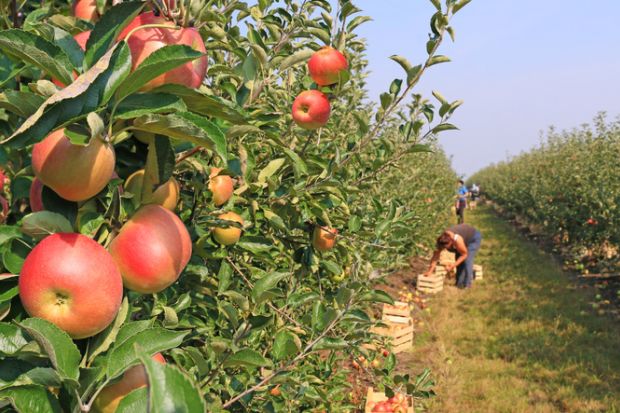A UK doctoral training centre has apologised for an email that advised PhD students to consider fruit-picking or selling cosmetics door to door if they are short of money.
In an apology published on 21 July, the Aries DTP (Advanced Research and Innovation in the Environmental Sciences Doctoral Training Partnership), led by the University of East Anglia, said it was “sorry for any offence caused” by an email sent to its students that offered “suggestions” on how they could earn extra cash if their PhD stipend was not sufficient.
The ideas for work suggested by the centre, which is funded by the Natural Environment Research Council (NERC), included “selling Avon or similar”, “fruit-picking”, participating in “paid clinical trials”, “dog walking or other pet sitting”, “cleaning” and “babysitting”.
It also advised PhD students to consider working as a delivery driver, in retail or “service work” or doing “paid surveys”.
The suggestions, however, led to outrage online after a screen grab of the email was posted on Twitter by anthropologist Adriana Lowe, a former University of Kent PhD student, with academics describing the advice as “unbelievable”, “appalling” and “freaking ridiculous”.
Jenni Barclay, director of the Aries DTP, whose members include the university of Essex, Kent and Plymouth, as well as Royal Holloway, University of London, and professor at UEA’s School of Environmental Sciences, said the options for paid work had been compiled as part of a “detailed compilation of ideas” on how PhDs could earn money and was added as an email attachment to students.
“The intention here was to provide support as an interim measure as we try to improve global response to this problem for students,” said Professor Barclay.
On Twitter, UK Research and Innovation, which oversees the UK's research council, including NERC, said the letter was not sent by the research council and “doesn't reflect our position”.
“We do recognise the effect the cost of living is having on students and are looking to see if we can provide further financial support,” it added.
The email is likely to raise further questions about the level of the UKRI minimum stipend of £15,609, which is set to rise by only 2.9 per cent when it is next adjusted for the 2022-23 academic year, having been set when inflation was much lower than its current rate of nearly 10 per cent.
More than 13,000 people, including nearly 10,000 postgraduate researchers, have now signed a petition calling on UKRI to commit an extra £44 million towards PhD funding, which would allow the funder to raise minimum stipends in line with inflation.
Register to continue
Why register?
- Registration is free and only takes a moment
- Once registered, you can read 3 articles a month
- Sign up for our newsletter
Subscribe
Or subscribe for unlimited access to:
- Unlimited access to news, views, insights & reviews
- Digital editions
- Digital access to THE’s university and college rankings analysis
Already registered or a current subscriber? Login










